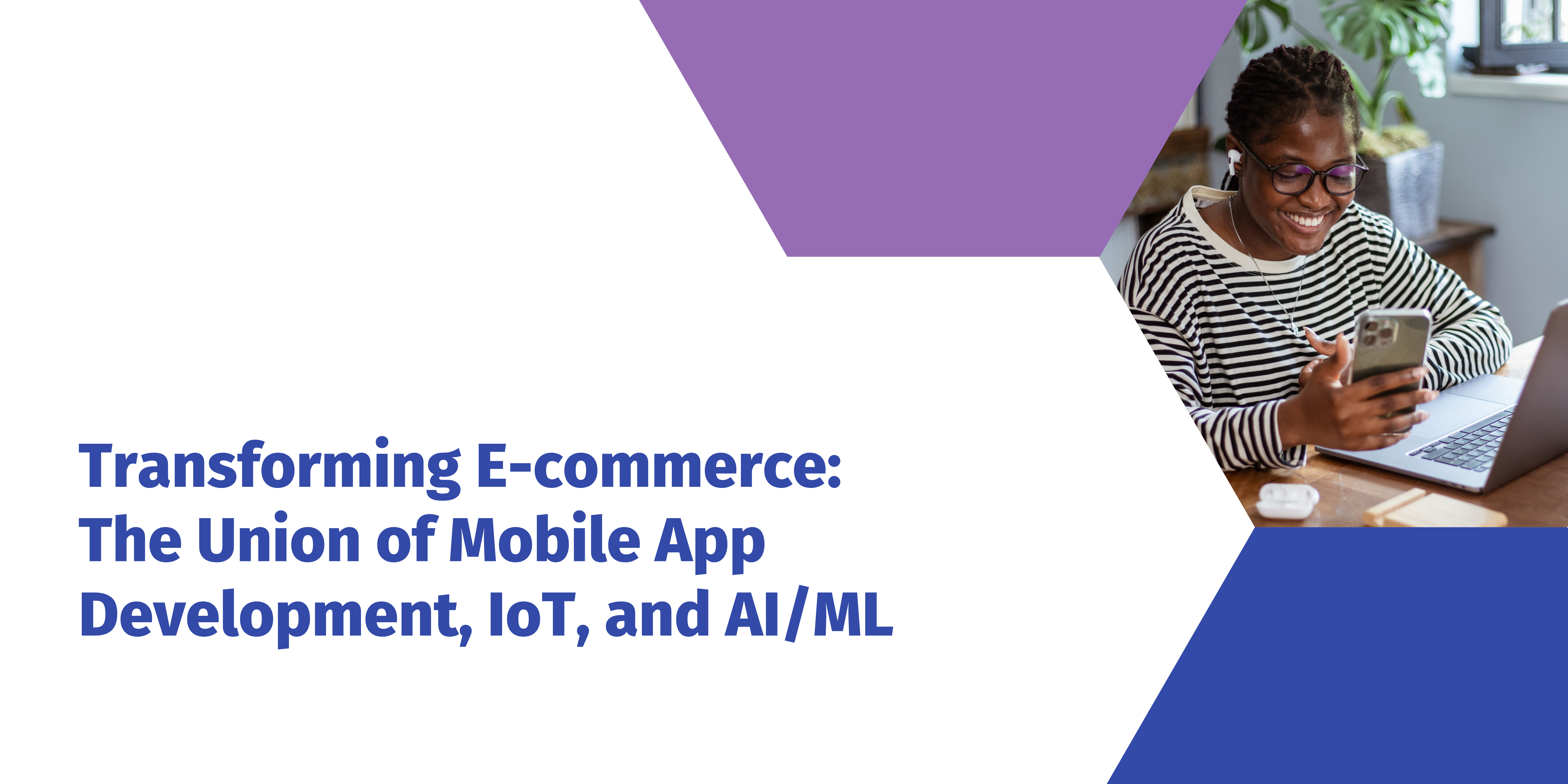The e-commerce landscape has evolved remarkably, courtesy of mobile app development, IoT (Internet of Things), and AI/ML (Artificial Intelligence and Machine Learning). In this blog, we explore the profound impact of these technologies on e-commerce, analyzing their role in redefining the shopping experience and their broader societal implications built with the support of a top mobile app development company in Australia.
The Mobile App Renaissance in E-commerce
Mobile applications have become the lifeblood of e-commerce, seamlessly connecting online retailers with consumers and redefining the shopping experience. They offer many advantages, making them indispensable for shoppers and businesses.
- Seamless User Experience: E-commerce mobile apps present an intuitive, user-centric interface, simplifying shopping. Features like single-click payments, personalized recommendations, and effortless navigation contribute to a frictionless user experience.
- Personalization and Geolocation: Leveraging location services, mobile apps enable retailers to offer location-based promotions, enhancing user engagement. Furthermore, AI algorithms analyze user data, generating tailored product recommendations.
- Push Notifications: E-commerce apps maintain user engagement through push notifications. Retailers can inform customers about new products, exclusive deals, and order status updates, translating into increased sales and loyalty.
- Offline Accessibility: Several e-commerce apps provide offline access to product catalogs, ensuring users can browse even in areas with limited or unreliable internet connectivity.
- Speed and Performance: Mobile apps are meticulously optimized for speed and performance, minimizing loading times and ensuring a smooth, fast shopping experience, guaranteeing higher user satisfaction.
The Nexus of IoT and E-commerce
The Internet of Things has seamlessly woven into the fabric of e-commerce, connecting diverse devices to forge a unified shopping experience with the help of an ecommerce app development company. IoT-enabled devices collect real-time data harnessed to streamline operations and enhance shopping.
Smart Shopping Assistance: IoT devices like smart mirrors and virtual fitting rooms empower shoppers to visualize products, such as clothing or furniture, in their personal space. This boosts consumer confidence and lowers the chances of returns.
Inventory Optimization: Real-time inventory tracking is made possible by IoT devices. This ensures products are in stock and available, mitigating customer frustration due to “out of stock” items.
Supply Chain Enhancement: IoT devices play a pivotal role in logistics and supply chain management, guaranteeing the efficient delivery of products, leading to reduced shipping costs and quicker deliveries for consumers.
Security Augmentation: IoT-driven security systems safeguard physical stores and warehouses, minimizing theft and ensuring a safer shopping environment.
Artificial Intelligence and Machine Learning: Personalizing the Shopping Odyssey
AI and ML technologies have emerged as potent tools in e-commerce, profoundly altering how retailers interact with consumers and how consumers explore and purchase products.
Personalized Recommendations: AI algorithms meticulously analyze user data, facilitating exact product recommendations. These recommendations not only enrich the shopping experience but also drive up sales for retailers.
Chatbots and Customer Support: AI-powered chatbots extend round-the-clock customer support, responding to queries, tracking orders, and even assisting in the shopping process. This elevates customer service and ensures satisfaction.
Predictive Analytics: AI and ML algorithms can forecast trends and pinpoint popular products, enabling retailers to stock the correct items and reduce losses from unsold inventory.
Dynamic Pricing: AI-powered dynamic pricing models adapt product prices in real-time, factoring in variables like demand, competition, and user behavior, ensuring competitive pricing and maximum profitability.
Fraud Detection: AI systems are adept at identifying fraudulent transactions, safeguarding retailers and consumers from cyber threats, and fostering a secure online shopping environment.
The Societal Impact of E-commerce Apps, IoT, and AI/ML
The transformative impact of e-commerce, IoT, and AI/ML extends beyond shopping. IoT and AI/ML technologies have left an unforgettable mark on society, reshaping how we shop and interact with the world.
Accessibility: E-commerce apps, accessible via smartphones, have democratized shopping, granting individuals with mobility issues or residing in remote areas access to an extensive array of products and services.
Economic Opportunities: The surge of e-commerce has spawned job opportunities in logistics, marketing, app development, and customer service, thereby contributing to economic growth and livelihoods.
Reduced Environmental Footprint: IoT technology has optimally fine-tuned supply chains, resulting in more efficient transportation and reduced carbon emissions. In some cases, online shopping requires less energy and resources compared to traditional retail.
Global Marketplace: E-commerce has facilitated cross-border trade, connecting consumers with products and artisans worldwide. This has encouraged cultural exchange and international cooperation.
Educational Resources: The vast information and educational content available through e-commerce platforms and mobile apps have empowered users to learn new skills, furthering personal and professional development.
Support for Small Businesses: E-commerce platforms provide small businesses with a global platform to showcase their products, compete with more giant corporations, and thrive in the digital era.
Conclusion
The fusion of mobile app development, IoT, and AI/ML has heralded a revolution in e-commerce, redefining the shopping experience and its broader societal implications. These transformative technologies have streamlined shopping and influenced societal dynamics, fostering economic opportunities, reducing environmental impact, and engendering a global marketplace. As we gaze into the future, integrating technology into e-commerce with the help of a top mobile app development company in Australia promises to enrich our lives further and redefine how we engage with the world.

